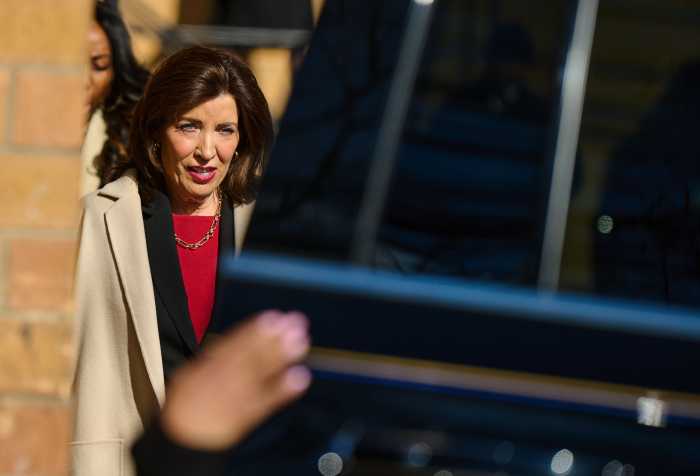In Comptroller Scott Stringer’s words, voter turnout in the city has been “abysmal.” In the 2016 presidential election that propelled Queens native Donald Trump to an uneasy victory, just under 56 percent of the registered voters in the five boroughs went to the polls.
The September primary in Queens drew even fewer voters as a percentage of those eligible to cast ballots. Adding to the failing report card, New York state is ranked 41st in the nation for poor voter participation.
The state Legislature concluded yet another session in June without enacting significant election reform, so it’s no surprise that many voters in Queens have been turned off rather than turning out to navigate an archaic voting system.
Mayor Bill de Blasio has pushed Albany to pass a package of bills that would introduce same day registration, allow early voting seven days prior to the election and streamline the absentee ballot procedures. The Democrat-heavy Assembly has repeatedly passed vote reform measures, but the Republican-controlled Senate has blocked passage of significant changes out of fear that more Democrats would go to the polls and threaten their seats.
Gov. Andrew Cuomo, a Democrat, has not made election reform a priority, leaving New York City voters to grapple with registration problems, an early deadline to switch political parties and frequent chaos at the polling sites.
Albany dysfunction aside, Monday’s terror attack was a stark reminder of what New York City represents to the fanatics who want to eradicate the freedoms enshrined in the Statue of Liberty. The city welcomes immigrants from other parts of the country and the far-flung corners of the globe. Queens is the most diverse spot on the planet because millions of people have flocked to the borough in search of the right to vote, speak freely and live in an open society.
Newly minted citizens, as well as long registered voters in Queens, have the chance to make their voices heard at the polls next week. There are real choices on the ballot in some City Council districts, where incumbents Elizabeth Crowley, Barry Grodenchik, Eric Ulrich, I. Daneek Miller and Paul Vallone face opponents. And in southeast Queens, the race to replace convicted felon Ruben Wills has three candidates vying for his seat.
Also on the ballot (on the back, unfortunately) is a controversial proposal to change the state Constitution which has pitted reformers against defenders of the status quo.
It’s time to ignore Albany’s follies. Go the polls to help chart the future of Queens and celebrate your right to vote.


































